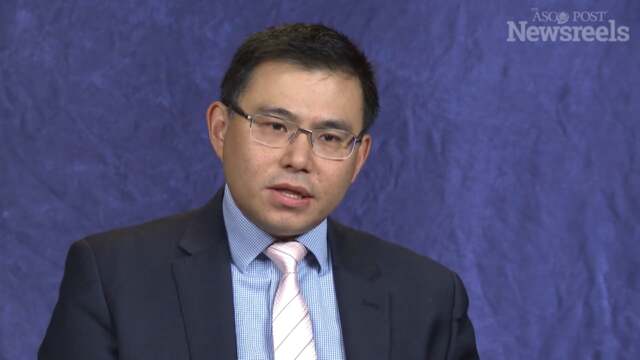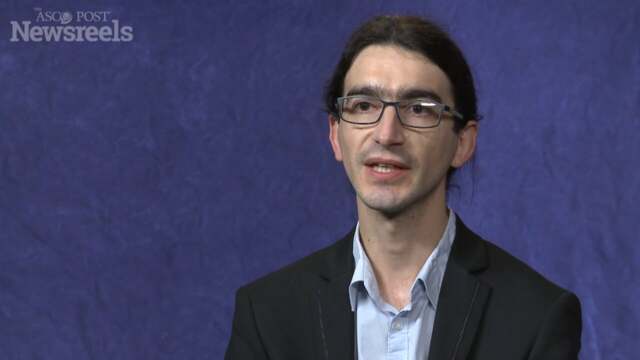Cathy Eng, MD, on Anal Squamous Cell Cancer: Management Strategies
2017 Gastrointestinal Cancers Symposium
Cathy Eng, MD, of The University of Texas MD Anderson Cancer Center, discusses management approaches to anal cancer, including the current standard of care, as well as novel approaches for locally advanced and metastatic disease.
Cornelis van de Velde, MD, PhD, of Leiden University Medical Center, discusses the International Watch & Wait database, established to track evidence on organ-preserving strategies in patients with rectal cancer (Abstract 521).
For More Information: www.IWWD.org
Ian Chau, MD, of the Royal Marsden Hospital, discusses the continuum of care in esophageal and gastric cancers and the multiple active lines of treatment. Routine adoption of genomic testing may lead to further refinement of current treatment and more options in the future.
Julien Edeline, MD, of the Centre Eugène Marquis, discusses in French study findings on gemcitabine and oxaliplatin vs surveillance following surgery for localized biliary tract cancer (Abstract 225).
Michael J. Overman, MD, of The University of Texas MD Anderson Cancer Center, discusses study findings on nivolumab alone or in combination with ipilimumab in patients with DNA mismatch repair–deficient/microsatellite instability high metastatic colorectal cancer (Abstract 519).
Eileen M. O’Reilly, MD, of Memorial Sloan Kettering Cancer Center, discusses a range of topics, including tyrosine kinase inhibitors, immune therapies, targeted approaches, and DNA damage repair strategies.





